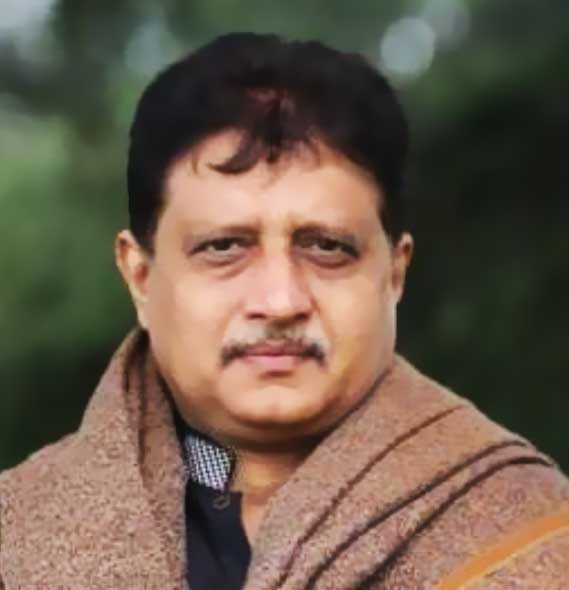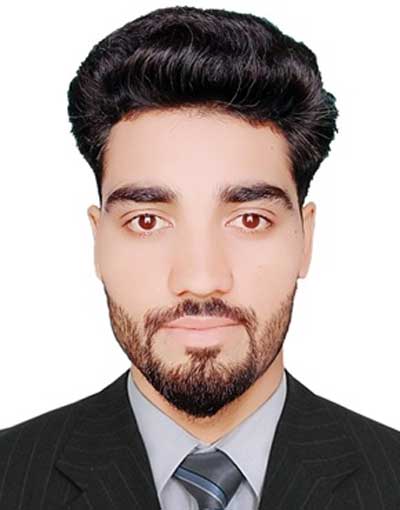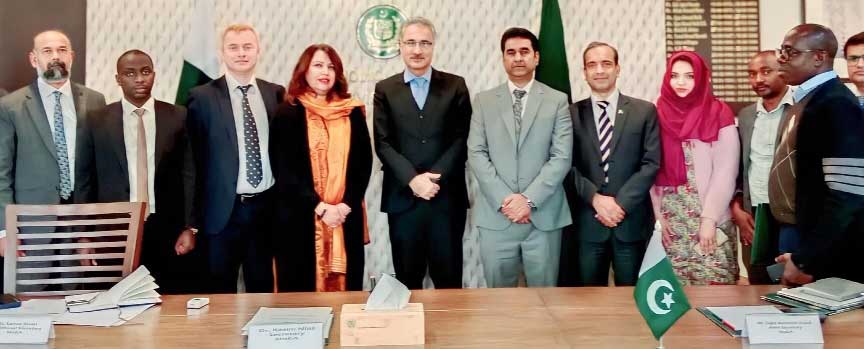In the recent political history of sit-ins and long marches in Pakistan, the Pakistan Tehreek-e-Insaf and Pakistan Awami Tehreek sit-ins in 2014 will be remembered by all. It should be noted that PTI sit-in had continued for 126 days, which began in the form of a long march from Lahore on August 14 and on August 18, Imran Khan announced to enter the red zone of the federal capital. In 2017, Tehreek-e-Labaik shut down the federal capital for three weeks by marching towards Islamabad against the alleged change in the affidavit of members of the National Assembly during the Muslim League (N) regime. Later, under an agreement with the government, the TLP agreed to end the sit-in under which Federal Law Minister Zahid Hamid resigned. later on,TLP called for sit-ins in Faizabad in November 2020 and again in April 2021 against the publication of sketches of the Prophet of Islam in France.
Pakistan Democratic Movement (PDM) chief Maulana Fazlur Rehman protested and staged a sit-in outside the Supreme Court in May 2023 and said that the Supreme Court would be told “Mother of law is mother in law, The Supreme Court is protecting the crime instead of eradicating the crime, the Supreme Court is protecting the criminal. Bilawal Bhutto Zardari has also made a long march from Sindh to Islamabad and he also staged a sit-in in the red zone. In the past, teachers, doctors and disabled people have also reached the red zone and protested. In the past, political and religious parties have been entering Islamabad in the form of long marches, sit-ins, and protests so that the rulers sitting in Islamabad can hear the voice of the poor and downtrodden.
One such long march reached Islamabad under the auspices of the Baloch Solidarity Committee, which was led by Dr. Mah Rang Baloch and Sami Deen Baloch, daughter of the missing Dr. Deen Muhammad Baloch. When the long march of the Baloch Solidarity Committee reached Islamabad, they were subjected to violence. Women, children and elderly people involved in the long march were arrested and locked up in different police stations. While human rights organizations protested against this brutality, the Islamabad High Court expressed its indignation at the federal police and said, “Don’t treat the Baloch protesters in the capital like enemies.”
It should be remembered that during the sit-in and protest of PTI, police officers and soldiers were also tortured, PTV was attacked, the gates of the National Assembly broken. At that time, the police tortured the PTI workers and neither arrested them nor registered FIRs against them, but the participants of the Baloch Solidarity Committee were brutally tortured. Demonstrations are taking place across the country, including Balochistan, on the misbehavior of the federal government and this incident is being condemned.
This is the reason why Prime Minister Anwarul Haq Kakar has formed a committee consisting of three ministers for negotiations. It would have been good if Prime Minister Kaktor Baloch would have called a delegation of Baloch Solidarity Committee to the Prime Minister’s House and placed the hand of compassion on their heads and redress the abuse done to them. It has happened for the first time in the history of Pakistan that the Prime Minister of Pakistan, Interior Minister and Chairman Senate belong to Balochistan. The Prime Minister and Home Minister should play their positive role on the issue of enforced disappearances.
There has been insurgency in Balochistan before, Balochs have also fought an armed struggle, but the doors of negotiations remained open for each other. There was a time when mature political leaders like Mir Ghus Bakhsh Bizenjo, Sardar Attaullah Mengal, Sardar Khair Bakhsh Marri, Nawab Akbar Bugti and Abdul Samad Achakzai were part of the political process. Despite extreme differences with Islamabad, these leaders remained part of the Parliament and Federation. They have been trying to solve the problems through negotiations by staying within the constitution and border limits of Pakistan, but now the situation has completely changed.
Resistance, militants, separatists, angry Baloch, whatever you call them. He has refused to negotiate with the federal and provincial governments. Late Hasil Khan Bizenjo and Dr. Malik Baloch tried hard to negotiate with the angry Baloch but they failed in their aim. If some people have reached Islamabad after a peaceful long march, they want a solution to the problem from the government, they want negotiations, they want justice from the judiciary. The participants of the Baloch Solidarity Committee are a ray of hope, the justice seekers and the negotiators should be spoken to openly. The way negotiations are conducted with other parties and units of the country, they should be listened to and purposeful negotiations should be conducted with them.
There is no doubt that anti-national forces have their claws in Balochistan and they are using the angry Baloch people for their own purposes. In Balochistan, the army and law enforcement agencies are also targeted. The soldiers of the Pakistan Army are also martyred, Innocent school teachers and laborers are also killed. All those anti-national elements who are engaged in war and struggle against Pakistan in the hands of foreign forces should definitely be dealt with according to the law. Along with this, the problem of fake police encounters and forced disappearances must also be addressed. Incidents of enforced disappearances have made the situation in Balochistan more serious. This can be seen from Justice Mohsin Akhtar Kayani’s remarks, “The way people are being forcibly disappeared in the country, it feels like there is no law and order in the country and anyone can do whatever they want.” It is being done.” He also said that “no agency is exempted from picking up people for many years”. The Supreme Court has also said that “the sacrifices of the security agencies for the security of the country cannot be ignored in any way, but the eyes cannot be turned away from the issue of forcibly missing persons.” The cases of recovery of missing persons have been pending in the courts for years, if justice is provided in time while meeting the demands of justice, the anger and concerns of Balochistan can be eliminated.
We need to take strict action against terrorists, extremists and anti-nationals, while we need to protect patriots, peace-loving and innocent citizens and make them feel that police and law enforcement agencies are their protectors. There is also a need to continue the dialogue with the nationalist Baloch and keep them engaged. Negotiations and discussions will lead to improvement.
Doors of dialogue with the Baloch should not be closed




